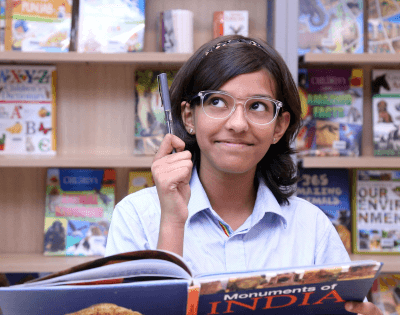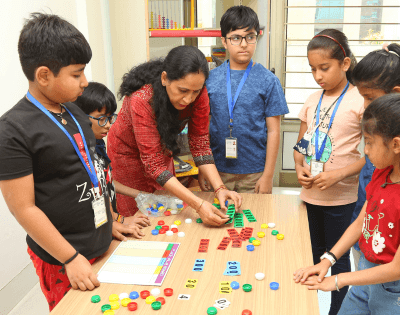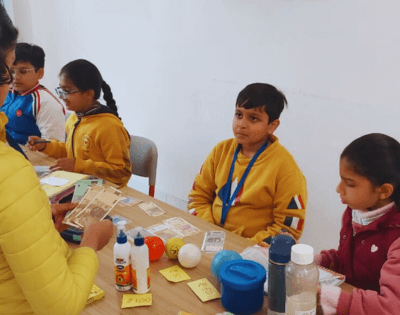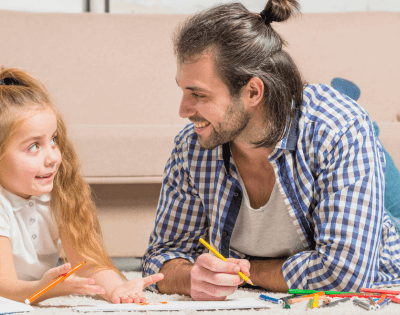The Indian education system is evolving every day. Schools and the government are making equal efforts to ensure students receive the best education. Modern techniques have long replaced the traditional methods of teaching. We have come a long way from projectors and smart classrooms to experiential learning.
The new generation has the opportunity to learn in a better and refined way. Parents choose schools that provide the best curriculum, innovative learning strategies, and the latest technology and facilities. Early childhood experiential learning helps the child to get a better grip on the concepts and understand the subject on a deeper level. This creates a strong foundation for a successful academic future.
What is Experiential Learning?
Experiential learning is learning through experience, which can be any action, activity, cooperation, etc. This is more of an individualized learning process that focuses on the learning context. These experiences stick with the students, build a context around the lesson and this is how it helps in learning.
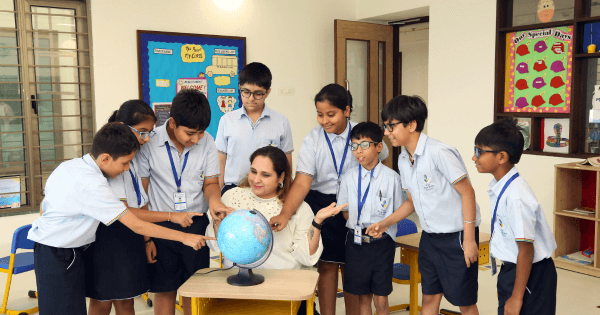
“Tell me and I forget, Teach me and I remember, Involve me and I will learn.”
– Benjamin Franklin, 1750
This quote by Benjamin Franklin aptly explains the philosophy behind the methods of experiential learning. Kids learn better when they are involved in the process. It can be through any way including activity, play, group project, or hands-on learning. These require active involvement of the students, as ‘learning by doing’ is the essence of experiential learning. Rather than just memorizing or cramming the facts and fixtures, this approach to learning allows them to explore, learn, and evolve.
Exploring through Experiential Learning
Exploration is at the heart of experiential learning. Children are known for their inquisitiveness and curiosity. This learning technique harnesses this quality to teach them about different subjects like science, mathematics, English, and more. Activities are organized which helps them interact first-hand with the subject. A simple nature walk is used to help them explore different leaves, plants, flowers, and insects.
Children should be given the freedom to explore, discover, and ask questions. This exploration not only connects them with what they learn but also instills a love for learning that goes beyond the classroom.

Learning through Experiential Learning
The main aspect of experiential learning is that it makes learning simple, easier, and fun. Schools plan activities like planting a sapling, singing, performing a skit, solving puzzles, and doing science experiments, to help the child learn valuable things while doing it.
Experiential learning teaches you things that books fail to explain you. Books will tell you the plant growth cycle but not the sensitivity of a plant to its environment and how much consistent care it requires. Planting a sapling activity gives the child a first-hand experience of how a plant grows. They get an understanding of the role of water, sunlight, and soil, and learn to take care of their little garden. This teaches them about biology, the environment, and responsibility.

Evolving through Experiential Learning
Child evolves when they apply the knowledge learned to their own lives. After experiencing the whole process, they must analyze, note the key takeaways, and apply them. Real-life applications help them to not just learn but memorize it.
Experiential learning makes the child more adaptable, creative, and resilient which enables them to deal with real-life situations. Through these innovative learning strategies, they become capable enough to face real-life challenges and opportunities. They evolve and learn to apply their knowledge in new and different contexts, making them better equipped to thrive both academically and personally.
5 Main Benefits of Experiential Learning
- Better Understanding of Concepts
To become successful in your career later on, it is important to have your concepts clear. Experiential learning helps them get a better understanding by involving them in the learning process. The activities give the child hands-on experience, making them understand the concept better.

- Good Retention of Information
Experiential learning not only helps in making the learning easier and better. It even helps in retaining the information. When the child has a better understanding of the concept, they can recall it unlike when they learn it through a textbook.
- Critical Thinking Ability
Experiential learning makes the child ready for the outer world. During the learning process, they often face situations where they have to observe, reflect, and analyze. They develop a critical thinking ability which helps them analyze the situation and come up with creative solutions.
- Boosted Confidence
Actively participating in activities builds self-confidence in kids. They face challenges in a controlled environment, taking help from their educators and collaborating with peers. As they see their results, they gain confidence in their abilities to think critically, solve problems, and succeed.
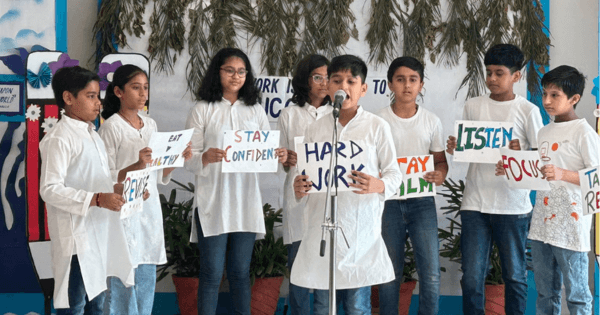
- Holistic Development
The benefits of experiential learning are far beyond academic success. It impacts all aspects of the child’s life. Hands-on activities, nurture the child intellectually, physically, emotionally, and socially.
Modern times call for a new and improvised way of learning. It’s high time that you should introduce your child to the wonders of experiential learning if they haven’t been already. They might be missing out on advanced and innovative learning strategies. The soon you introduce your child to this the better.
The Blue Bells School follows this approach to learning which ensures that children explore, learn, and evolve in a nurturing environment. Through hands-on learning for children and innovative learning strategies, they prepare their students not just for academic success but for life. They explore by doing, learn through experience, and evolve into confident, capable individuals ready to take on the world.

